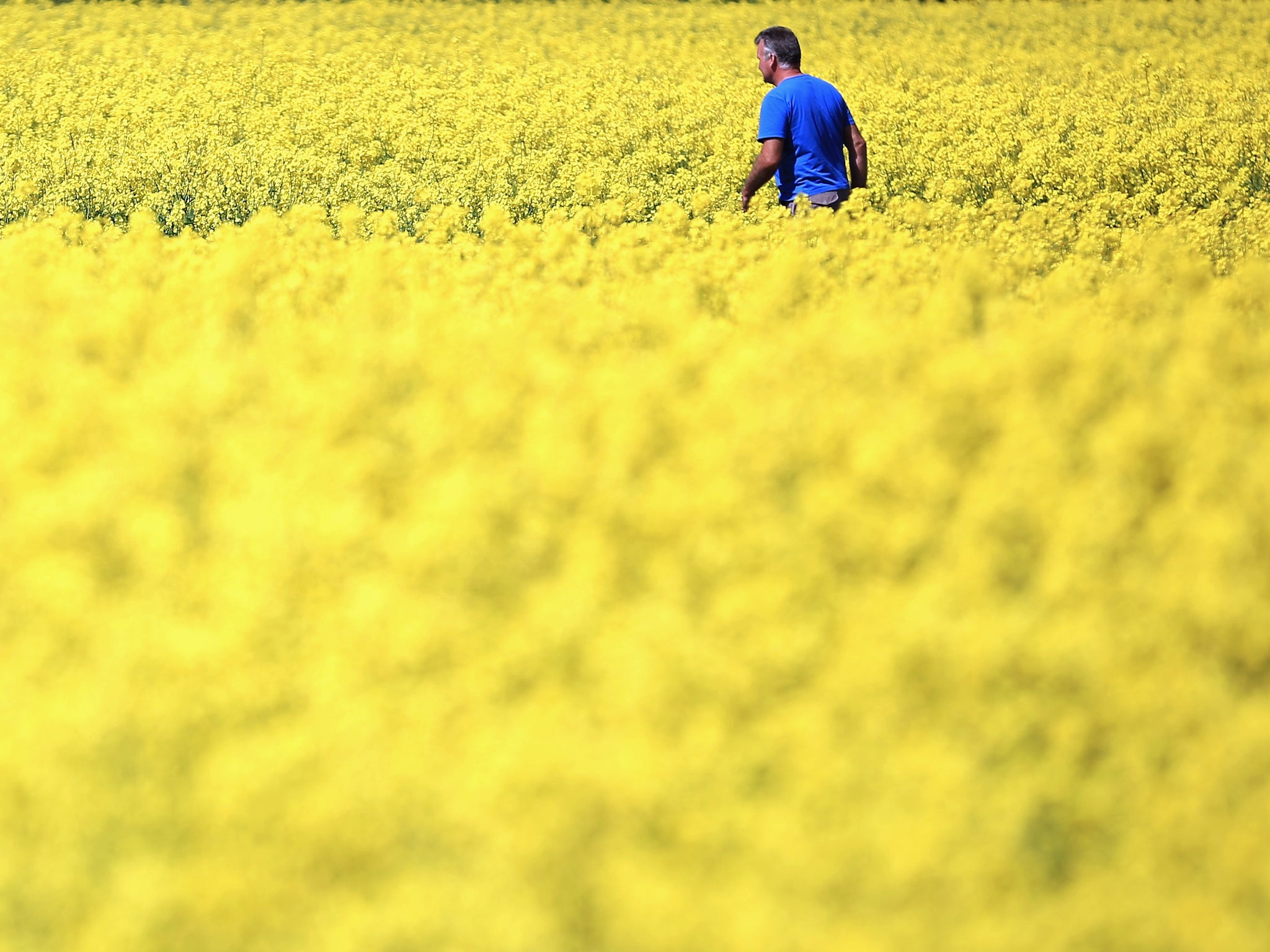Hay fever warning as UK pollen count soars across swathes of England and Wales
The pollen count is expected to be 'very high' in parts of the UK

Hay fever sufferers hoping to spend their weekend relaxing in parks and green spaces are being warned over the high pollen count expected to hit large swathes of the UK.
The combination of warm and dry weather has created the perfect conditions for releasing pollen, according to forecasters.
The south west of England and Wales will see the pollen count reach 'very high levels' on Thursday - the most severe - while London and the south east of England can expect 'high levels'.
These levels are predicted to hit very high across the south and southeast by Sunday and will only ease up the next time it rains – an event which may not occur until the end of next week, according to the Met Office.
Hay fever is caused by an allergic reaction to pollen and affects one in five people in the UK. When pollen particles come into contact with the mouth, nose and eyes the immune system responds as if it is being attacked by a virus by releasing chemicals to prevent the ‘infection’ spreading.
These chemicals in turn cause the typical (and highly annoying) symptoms of an allergic reaction, such as watery eyes and a runny nose. Nearly all sufferers (95 per cent) are allergic to grass pollen, which peaks during the summer months.
Experts advise people battling hay fever take over the counter medicines and avoid drinking alcohol because it contains histamine, the chemical that sets off allergy symptoms.
A spokesperson for the Met Office said: “Levels will be very high in London, East Anglia and in the west of England and Wales, but will be more moderate the further north you go.
“It’s not unusual to see higher pollen counts in built up areas such as London, which is largely due to the warm, dry weather. When it rains, the pollen count is much lower, and it has not rained a lot recently.
“A wet but warm winter followed by a very mild spring, which had good periods of dry weather with sunshine with some showers, means there has been a lot of plant growth – this has been a really good year for plant growth. Because of that, the pollen count is very high."
Those who are desperately seeking solace from symptoms can always head down to a ‘sneeze-free’ pop up garden on London’s South Bank. The garden contains more than 2,000 low-allergen plants including vivid Begonias, Fuchsias, Petunias, Geraniums, Hibiscus, Clematis and Bay trees.
Join our commenting forum
Join thought-provoking conversations, follow other Independent readers and see their replies
Comments
Bookmark popover
Removed from bookmarks